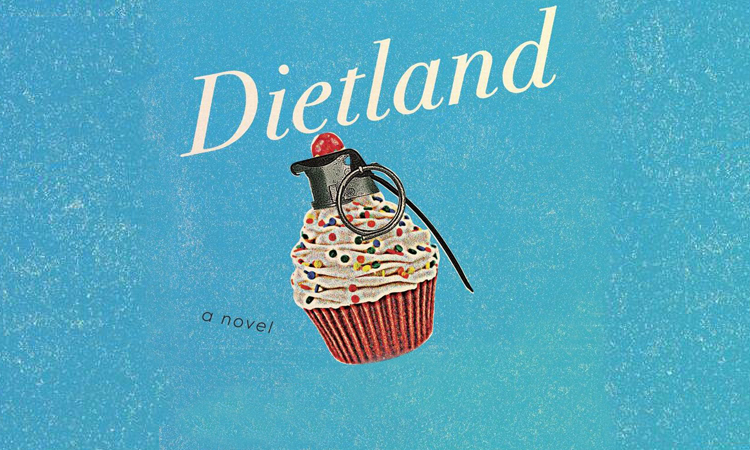
I read Dietland in my role as an administrator for Great Group Reads, an extension of National Reading Group Month that occurs every October. NRGM was launched by the Women’s National Book Association in an effort to promote the importance of reading and to spotlight the value of books, especially books read by members in groups and book clubs. I opened Walker’s novel prepared to read a good story, but wholly unprepared to be so irrevocably changed by it.
When thinking about this article, I said aloud to my spouse, “I’m not sure how I’ll be able to write about Sarai Walker’s book Dietland without betraying my own weird relationship with food and with my body.” She said, “Say that.” So here I am, qualified to write about this book because I’m an avid reader and former therapist, someone who was once certified to train and treat other people who had issues with weight maintenance, but more qualified to write about it because I’m a female who struggles with body image and confidence and self-compassion.
This book deals with how it feels to look in the mirror, to walk down the street, to order a meal, and make career choices based on one’s own sense of personal value and beliefs about appearance. It uses day-to-day experience along with some select moments of violence and pornography to illustrate these concepts. While the book is not gratuitously violent or pornographic, it does use those elements to make a valid and impactful point. It has been referred to as Fight Club for Women.
Most women I know have experienced what it’s like to look in the mirror and feel less than happy with what they see. In college, I was painfully aware of every extra pound, every appraising glance, and every calorie consumed. The audience for Dietland includes women like me, but it’s also for men who want to see things change; for men who take things for granted about women and society, for conservative women, for feminists, and for your mother. My mom read it and liked it a great deal.
Dietland follows Plum, the main character, as she struggles with her weight, joins a cult-like group aimed at helping her lose weight, and eventually changes course as she begins to see society and women from a new perspective. Plum is 300 pounds and desperately wants to be thin. Like many women I know (and like myself in my 20s), she is willing to try almost anything to achieve that goal, to become slender and approved of and acceptable.
We watch Plum restrict her intake, schedule weight loss surgery, hide in her home away from the judging eyes of others, self-consciously order food and imagine how others perceive her food choices. We watch her make friends and become involved in a feminist movement. We pay attention as politics and current events in the book play out violently and unexpectedly. The book tackles the stigma of being overweight, fat-shaming, body image, power, privilege, sizism, ageism, and self-acceptance.
Dietland is more complex than it at first appears. It’s not just a little novel about loving yourself. It’s a send-up of the whole diet industry and a close look at society’s obsession with appearance. The author asks us to focus less on attractiveness, goal-weight, and approval and more on equality, respect, and kindness. Her hope is that we create a more civilized, aware, conscious culture. A fictional account that unveils hidden truths, this story challenges our culture that dehumanizes and objectifies women in subtle and overt ways so consistently that most of us hardly realize it anymore. Walker explores important ideas in her book and asks us to notice them in our daily lives. By the time you finish reading this book, you do notice and you are changed.
Click here to find out about Rose’s thoughts on wellbeing and health


